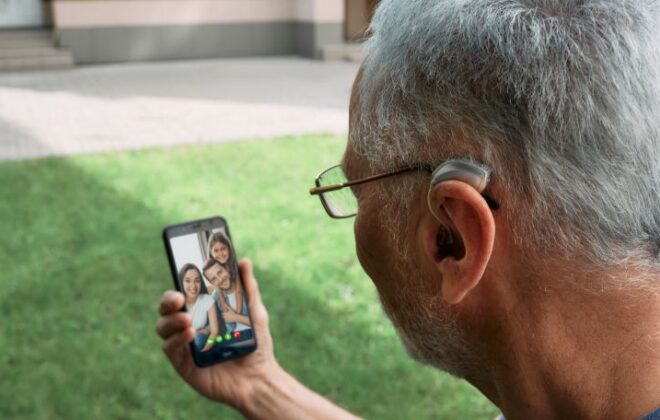Follow-up care after hearing aid fitting
Hearing aids come in handy to manage hearing problems and improve communication. If you realize that you need one for better socializing and good living, a visit to the audiologist should be on your cards. The specialist will assess your hearing impairment and find a hearing aid that suits you the best. The hearing aid functionality is always programmed and set according to the needs of the individual.
Once your set is ready, you will be asked to come to the clinic for a fitting. Definitely, using them will not be as easy as using a new set of reading glasses. Once they are out of the pack and fitted on you, you will embark on a new journey.
Sound becomes apparent and noise will be jarring to the ears. You might feel that everything around you troubles you as you will feel that they are too loud. For instance, the rustling of leaves or paper, the sound of the doorbell, or your baby’s footsteps might startle you. Little by little, your brain will adjust and train itself to ignore these mundane sounds.
Visit to hearing care professional
Once you have been fitted with a new set of hearing aids, a visit to your hearing care professional is a must within a given period. You will be asked to undergo tests for the adaptability of the new hearing aids, just to ensure that it is appropriate for you. The professional will then counsel you about the upkeep of the hearing aid like maintaining the batteries, cleaning the set, and everyday use of the device.
You can and should share all your problems with your hearing aid professional. It is not easy to adjust to a hearing aid, especially if you have lived in a world of silence for a long time. You might even take a month or two or just a week or two, it all depends on the individual’s capability.
Therefore you will need guidance from a hearing provider. He will understand your specific needs and give you a tailor-made approach for better communication. A follow-up appointment should never be ignored or missed.
Trials and issues
Once the fitting session is over, you will go through a trial period. During these two three-week week sessions, you will be asked to wear the hearing aid in different kinds of environments and settings. If you are comfortable, and if it works out fine, then no more hassles. But, if any issue crops up, then you have to make adjustments to your hearing aids. So, you need to visit the audiologist again.
Your audiologist will try to refit the hearing aids and give the new fitting a trial again. Still, if you find it difficult to decipher sounds, then you may have to go in for a re-order. But, usually, these situations are rare and the device will fit in fine as they are all custom-made. The audiologists take extreme care before choosing a hearing aid for you.
Wearing the hearing aids
Once the device is set, all that you have to do is begin to wear them. Initially, it is difficult to get accustomed to hearing aids. As stated earlier, the decibels will sound too high. Therefore, you will have to wear them for short periods for a week and then slowly increase the number of hours of usage.
Generally begin the exercise at home, in a quiet environment. Inform close people about your hearing impairment, so that your conversations can become easier. Get used to listening to your own voice, talk to pets, try locating the sources of sounds, or begin listening to audiobooks. All these measures will help you to adjust to your new gizmo. Please do not overdo this exercise, keep adding a few hours every day, till you get used to the hearing aids.
Taking the support of loved ones is very important. You will have to ask them to utter words with similar sounds and you must try to decipher, ask them to lend you a patient ear, and let them also know about your follow-up visits and the type of hearing aid you wear.
Checking to see if you are able to converse or hear a telephone conversation is very important. During further consultations with an audiologist, there is a dire need to check out this aspect and take corrective measures if needed. You should also report any ear pain to the audiologist as the custom-made earmolds may not sit inside your ears snugly and comfortably. Therefore, try to fix up as many follow-up visits to the audiologists as possible. They will take care of the fine-tuning or setting up of the volume of the instrument.
Additional support
Last but not the least, some people might find it embarrassing to wear hearing aids. If you are one, you will have to seek help from a psychologist to deal with your hearing loss. You can also work with a hearing therapist to develop better communication skills to combat any situation in society.




